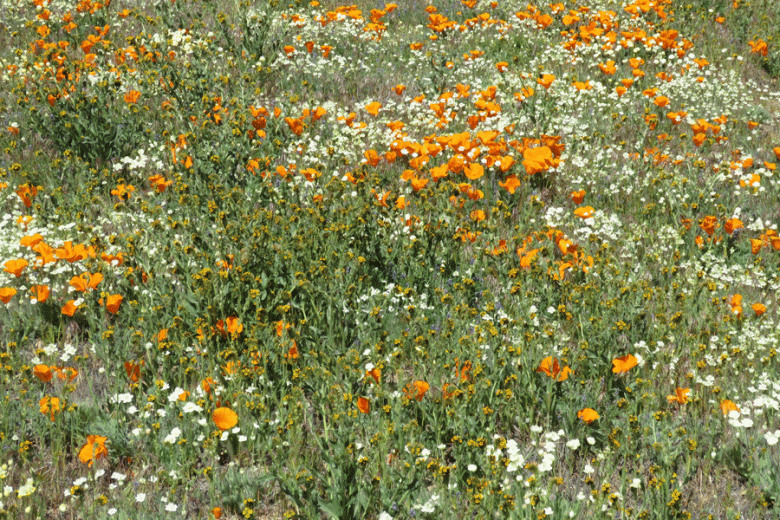I have healthy amnesia with respect to planting veggie gardens. Every few years, I give it another go, forgetting the realities of gophers, voles, moles, ground squirrels, and deer.
Our most recent attempt was a COVID garden in 2020, which was decimated overnight by insects.

This year, I’m attempting again to plant a “three sisters garden” (corn, beans, and squash). The veggie six-packs resembled handy take-out containers for the named varmints.
Results be damned, I love working in the garden. Whether or not it yields a crop, I relish the feel of the soil on my fingers, the fresh aroma, and the cacophony of house finches, spotted towhees, and oak titmice.
Working in the garden makes me appreciate the joys and traumas that farmers face.
My husband and I visited Quail Springs Permaculture in Cuyama Valley last month after purchasing the Farm Tour as part of a Santa Barbara Fund silent auction.
Quail Springs’ mission is to “empower people of all ages and backgrounds with knowledge, skills, and inspiration essential to cultivating ecological and social health.”
The residents and their work are a piquant demonstration of their mission statement. They build natural-material cob houses and grow climate-appropriate vegetables and animals using compost from the farm.
They are also outward-focused, advocating for sustainable groundwater use and statewide natural building policy, among other projects. Their practices have been honed over 20 years of experience and experimentation.
The work can be hard, but their excitement and contented lifestyle are palpable. Part of the pleasant ambiance may emerge from the soil itself.
Getting your hands dirty in the garden can increase your levels of serotonin, a natural anti-depressant that strengthens the immune system.
According to the University of Nebraska’s Duane A. Lieneman, “Mycobacterium vaccae … has indeed been found to mirror the effect on neurons that drugs like Prozac provide. The bacterium is found in soil and may stimulate serotonin production, which makes you relaxed and happier.”
Even if you’re not up for lifetime farming, there is another way for Californians to become part of the soil: “natural organic reduction.”
Keep up with Noozhawk’s daily news coverage, delivered at 4:15 a.m. right to your inbox.
Since I last addressed human composting in 2017, the practice has become legal in nine states. Oregon, Nevada, Arizona, Colorado, New York, Maryland, Delaware, and Vermont have approved procedures.
California has also legalized the process, although the law doesn’t take effect until 2027.
A dozen others have introduced bills.
Over the past six decades, cremation in the U.S. grew from about 4% to nearly 60%. Cremation costs are substantially lower than burial costs, but they also have huge environmental costs.
Massive amounts of energy are required to incinerate bodies into concentrated amounts of ash that are toxic to the soil. The process gives off so much climate-disruptive carbon dioxide that the number of cremation procedures is regulated by the South Coast Air Quality Management District.
A couple of hurdles remain for natural organic reduction: organ donation and religious institutional pushback.
As a designated organ donor, I was concerned about whether it is still possible to compost after donating an organ. Recompose, the Washington funeral home that became the first human composting company in the world, assures clients they can list themselves as potential organ donors and still choose human composting.
Just as governments have been somewhat slow to approve natural organic reduction, some religious institutions have not yet sanctioned the natural procedure. However, I have confidence that becoming part of the soil is very biblically aligned.
The writer of Genesis composed a verse in Chapter 3 that is repeated throughout the Hebrew, Christian, and Islamic texts:
“Dust you are, and to dust you will return.”
Make friends with the soil, our bodies’ eternal home. And think about choosing an organic versus a toxic departure.

Karen Telleen-Lawton, Noozhawk Columnist
This article was published on June 10th, 2024 in Noozhawk – you can read it “in print” here.
Karen Telleen-Lawton is an eco-writer, sharing information and insights about economics and ecology, finances and the environment. Having recently retired from financial planning and advising, she spends more time exploring the outdoors — and reading and writing about it. The opinions expressed are her own.
KTL at CanyonVoices dot com

